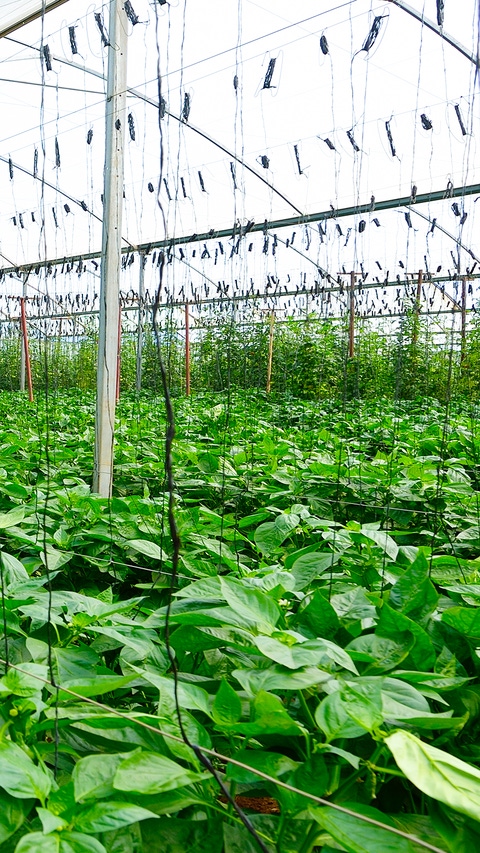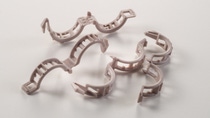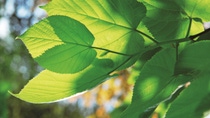- Drop-in solution: ecovio® T 2206 and 60 IA 1552 can be produced on standard polypropylene (PP) and polyethylene (PE) machines
Performance Polymers
ecovio® twines and clips
Twines and clips for the cultivation of greenhouse plants
Certified industrial compostable ecovio® T 2206 and ecovio® 60 IA 1552 for twines and clips used to grow annual fruit and vegetables in greenhouses
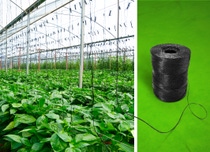
For sustainable agriculture and food production: BASF offers several ecovio® grades for agricultural products farmers use to cultivate annual fruit and vegetables in commercial greenhouses. As these grades are certified industrial compostable acc. to EN 13432, after harvesting the twines and clips can be collected together with the plant residues and transported to industrial composting facilities (depending on local regulations) where they biodegrade.
Advantages for farmers and society
• This saves costs and labour for farmers when compared to separating non-compostable twines and clips from the plant waste.
• Persistent microplastic in green organic waste usually caused by twines and clips made of polyethylene (PE) and polypropylene (PP) can be avoided. At the same time more green waste can be turned into valuable compost, thus contributing to a circular economy.
You can choose from these grades
Flip photos to learn more
High performance for many plants and climates
With twines and clips made of ecovio®, annual creepers like tomatoes, cucumbers and peppers can be securely fastened in greenhouse structures in many climates from Europe, South America to Asia and Canada. The two ecovio® grades are designed to perform effectively in horticulture, easily adapting to environmental conditions in greenhouses, like temperature fluctuations, relative humidity, and exposure to UV radiation.
Key technical benefits
For manufacturers
For farmers
Sustainability benefits
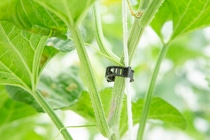
- Industrial compostable ecovio® extends end-of-life of twines and clips to organics recycling and helps to close the nutrient loop to achieve a circular economy
- Persistent microplastics in agricultural soil and in organic waste can be avoided
- More plant waste can be turned into valuable compost, thus also enhancing compost quality
- Tests by recycling specialist Renewi prove successful processing in industrial composting
Proven industrial compostability
Composting tests on industrial scale at the Dutch waste management company Renewi at Hook of Holland, show that the green waste together with the twines and clips is successfully processed in industrial composting and biodegrades within six weeks after each crop cycle.
As an expert in agricultural waste disposal, we recognize the significant value of BASF’s certified compostable ecovio® to increase organic waste collection and reduce landfill waste. This ties in with our commitment to a circular economy, i.e. to make smart use of materials also at the end of life, manage waste effectively and give new life to used materials. This is especially true for agriculture where recycling plays an important role to ensure soil health and food safety.
More BASF biopolymers for agriculture: ecovio® for mulch films
The certified soil-biodegradable grade ecovio® M 2351 (according to EN 17033) was especially developed for mulch films used in agriculture to increase the yield, speed up harvesting as well as to save water and herbicides. Mulch films made of ecovio® M 2351 are completely and biologically degraded by microorganisms like bacteria and fungi that exist naturally in the soil. Farmers can simply plough the mulch films made of ecovio® M 2351 back into the ground after harvest. This saves time and money - and it helps to avoid persistent microplastics in agricultural soil which would occur, if farmers used conventional mulch films made of non-biodegradable polyethylene (PE).

Consult with an expert
Self-service solutions:
